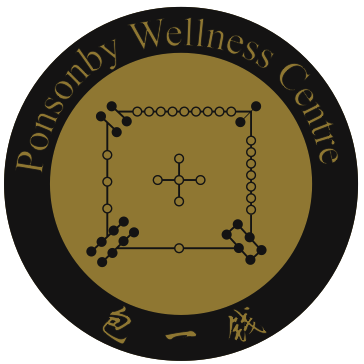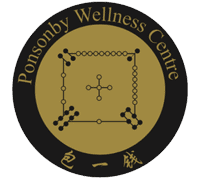Acupuncture for Sleep Disorders: A Natural Solution for Restful Nights
Sleep disorder is changes in sleep patterns or habits that can lead to fatigue, mood disturbances, and a negative impact on the quality of life, affecting millions of people worldwide. While conventional treatments like medication and cognitive behavioural therapy can be effective, acupuncture is an alternative and more natural approach to restoring a healthy sleeping pattern. This ancient practice, rooted in Traditional Chinese Medicine (TCM), is gaining scientific recognition for improving sleep quality and addressing the underlying causes of insomnia and other sleep disturbances.
:max_bytes(150000):strip_icc()/connection-between-mental-health-and-sleep-disorders-5206154-final-0103989979864ff69c1316ecf0299336.jpg)
Understanding Sleep Disorders and Their Causes
Sleep disorders encompass a range of conditions that impact an individual’s ability to fall asleep, stay asleep, or wake up feeling refreshed. Common types include:
- Insomnia –Difficulty falling asleep, staying asleep, or waking up too early. This affects nearly a third of the adult population and is higher among women than men.
- Sleep Apnea – Repeated interruptions in breathing during sleep, common as people age.
- Circadian Rhythm Disorders – Sleep-wake cycle misalignment due to shift work, jet lag, or irregular schedules. Often due to environmental changes (jetlag work shift times irregularity, delayed sleep pattern, irregular sleep-wake pattern)
- Sleep–related movement disorders– restless legs syndrome and periodic limb movements are more common in the elderly.

Several factors can contribute to sleep disorders, including:
- Stress and Anxiety – Overactivity of the mind and high cortisol levels can interfere with the ability to fall and stay asleep.
- Poor Sleep Hygiene – Irregular sleep schedules, excessive screen time before bed, and consumption of caffeine or heavy meals late at night can disrupt sleep.
- Hormonal Imbalances – Fluctuations in melatonin, cortisol, and other hormones can affect sleep quality.
- Chronic Pain – Conditions such as arthritis, migraines, and fibromyalgia can lead to discomfort that makes sleep difficult.
- Medications and Stimulants – Certain medications, including antidepressants and stimulants, may interfere with sleep patterns.
- Underlying Health Conditions – Disorders such as depression, thyroid imbalances, and sleep apnea can significantly impact sleep quality.
- Use of electronic devices before sleep
Why is it essential to treat sleeping disorders?
Sleeping disorders and insomnia are increasingly diagnosed across all age groups. Untreated sleeping disorders can progress into depression, mental disorders, metabolic syndrome, high blood pressure and cardiovascular (heart) disease, infectious diseases and cancer.
Why is good sleep important? High-quality sleep helps the body repair and recover and supports brain development, heart health and body metabolism. Science has also found that sleep can regulate the immune system, preventing the body from risks of cardiovascular disease, cancer and depression. Additionally, high-quality sleeping supports nerve cell communication, improving your brain function, memory and mood. Therefore, it is very important to seek treatment options if you are experiencing difficulty sleeping.

A move away from conventional sleep disorder treatment.
While prescription medications such as benzodiazepines and non-benzodiazepine sedatives provide short-term relief, they come with potential drawbacks:
- Dependency and Withdrawal Symptoms – Many sleep medications can lead to physical dependence, making it challenging to stop usage without experiencing withdrawal effects.- Although there are treatments for withdrawal, it involves taking medication (through tapering with clonazepam)
- Side Effects – Drowsiness, dizziness, cognitive impairment, and increased risk of falls are common adverse effects of sleep medications. (Read more about side effects from Mayo Clinic)
- Tolerance Build-up – Over time, the effectiveness of sleep medications may diminish, requiring higher doses for the same effect.
- Disruptions to Natural Sleep Cycles – Some medications suppress REM sleep or alter sleep architecture, leading to non-restorative sleep.

Given these concerns, acupuncture and Chinese herbal medicine offer a promising holistic approach without the risks associated with pharmacological treatments.
How Acupuncture Works for Sleep Disorders
Acupuncture is based on the principle that energy, or Qi (pronounced “chee”), flows through meridians in the body. When Qi becomes blocked or imbalanced, it can lead to various health issues, including sleep disturbances. Acupuncture involves the insertion of fine needles into specific points of the body to restore balance, improve circulation, and stimulate the nervous system.
Mechanisms Behind Acupuncture’s Effects on Sleep
- Regulation of Neurotransmitters – Acupuncture has been shown to increase the production of serotonin and melatonin, both crucial for sleep regulation. Melatonin controls the sleep-wake cycle, while serotonin helps in relaxation and mood stabilisation.
- Reduction of Stress and Anxiety – Acupuncture decreases cortisol levels (the stress hormone) and enhances endorphin release, promoting relaxation and reducing mental hyperactivity that often leads to insomnia.
- Pain Relief – Chronic pain conditions such as arthritis, migraines, and fibromyalgia can disrupt sleep. Acupuncture helps by reducing inflammation and improving circulation, leading to pain relief and better sleep.
- Improvement in Autonomic Nervous System Function – Acupuncture helps balance the sympathetic (fight-or-flight) and parasympathetic (rest-and-digest) nervous systems, encouraging relaxation conducive to sleep.

Research and Evidence Supporting Acupuncture for Sleep
Recent studies highlight acupuncture’s efficacy in treating sleep disorders:
Kim et al., 2021 reviewed 24 scientific studies and compared acupuncture with pharmacotherapy for patients with sleep disorders. The result showed that 15 out of 24 studies (over half) showed that acupuncture had significantly improved patients’ insomnia.
Zhao et al., 2021 reviewed 11 studies (where 775 subjects were involved) and found that acupuncture significantly improved total sleep time and efficiency and reduced wake after sleep and number of awakening times.
For people with chronic insomnia (3 months or more), acupuncture improved sleeping, reduced anxiety and depression, improved daytime fatigue and sleepiness (Wang et al., 2021)
The underlying mechanism of acupuncture:
Inserting needles into specific acupoints can promote the release of chemical substances and neuromodulation. One of the chemical substances released is melatonin. Melatonin is a neurohormone available as a supplement to help people with sleep. Acupuncture can stimulate the release of naturally released melatonin, reducing fatigue and improving cognitive functions.
Another way acupuncture can help with sleep is by modulating the hypothalamic-pituitary-adrenal (HPA) axis. This axis is part of the neuroendocrine system that controls the cortisol level, a stress hormone, in the body. As stress is a risk factor for poor sleep, acupuncture can modulate the HPA axis and down-regulate the release of stress hormones, which indirectly improves sleeping.
Other ways that acupuncture may work via:
- Regulating inflammatory pathways to restore the sleep rhythm
- Modulating neurotransmitters to improve deep sleep cycle
- Regulate gut microbiota to improve sleep-wake behaviour.
Integrating Acupuncture and Herbal Medicine with Lifestyle Changes
Chinese herbal medicine is an effective natural treatment for sleep disorders. Studies have been reviewed that herbal medicine improves sleepiness, quality of life, body weight, oxidative and inflammatory biomarkers, blood pressure, brain function and respiratory functions.
Chinese herbal medicine can be combined with acupuncture and healthy lifestyle changes for optimal results.
- Maintaining a consistent sleep schedule – Going to bed and waking up at the same time daily
- Limiting screen time before bed – Reducing blue light exposure to support melatonin production.
- Practicing relaxation techniques – Engaging in meditation, deep breathing, or gentle yoga before sleep
- Avoiding caffeine and heavy meals before bedtime – Supporting natural sleep rhythms
- Creating a comfortable sleep environment – Using blackout curtains, maintaining a cool temperature, and investing in a good mattress

Conclusion: A Holistic Approach to Better Sleep
Acupuncture and Chinese herbal medicine offer a natural, non-invasive, and practical approach to addressing sleep disorders. By balancing the body’s energy, regulating neurotransmitters, and promoting relaxation, these therapies can help individuals achieve deeper and more restorative sleep without the need for medications.
If you are struggling with sleep disturbances, consulting a licensed TCM practitioner may be a valuable step toward reclaiming your rest and improving your overall well-being. Combined with healthy sleep habits, acupuncture and herbal medicine can restore balance and achieve restful nights.
Read more about sleep disorders here
Contact Us
You can also book an appointment with our expertise acupuncturist here
Contact us via:
phone number: 021 2159963
email address: ponsonbywellness@gmail.com
Our Location
57 Sussex St,
Ponsonby
Auckland 1021


